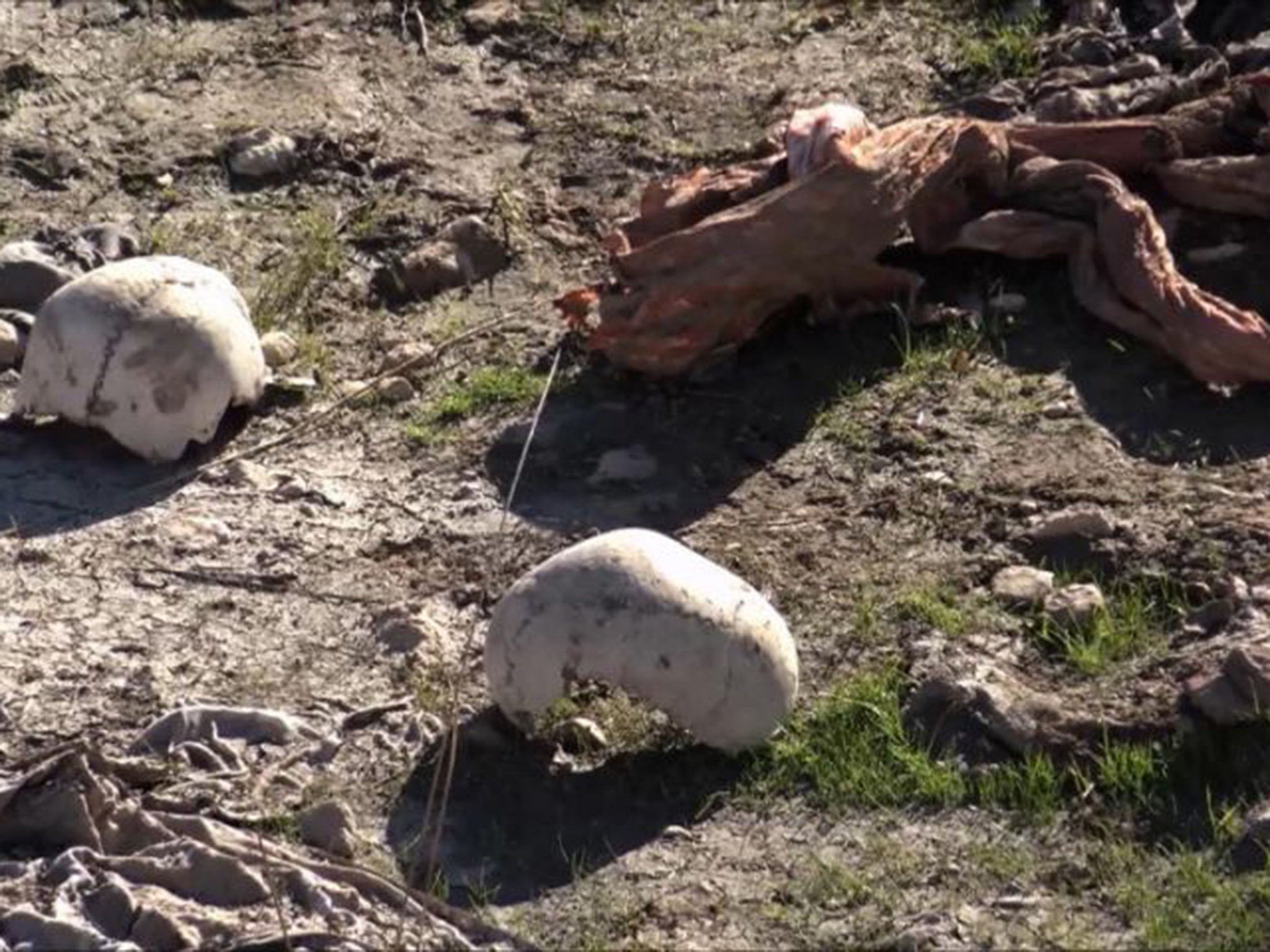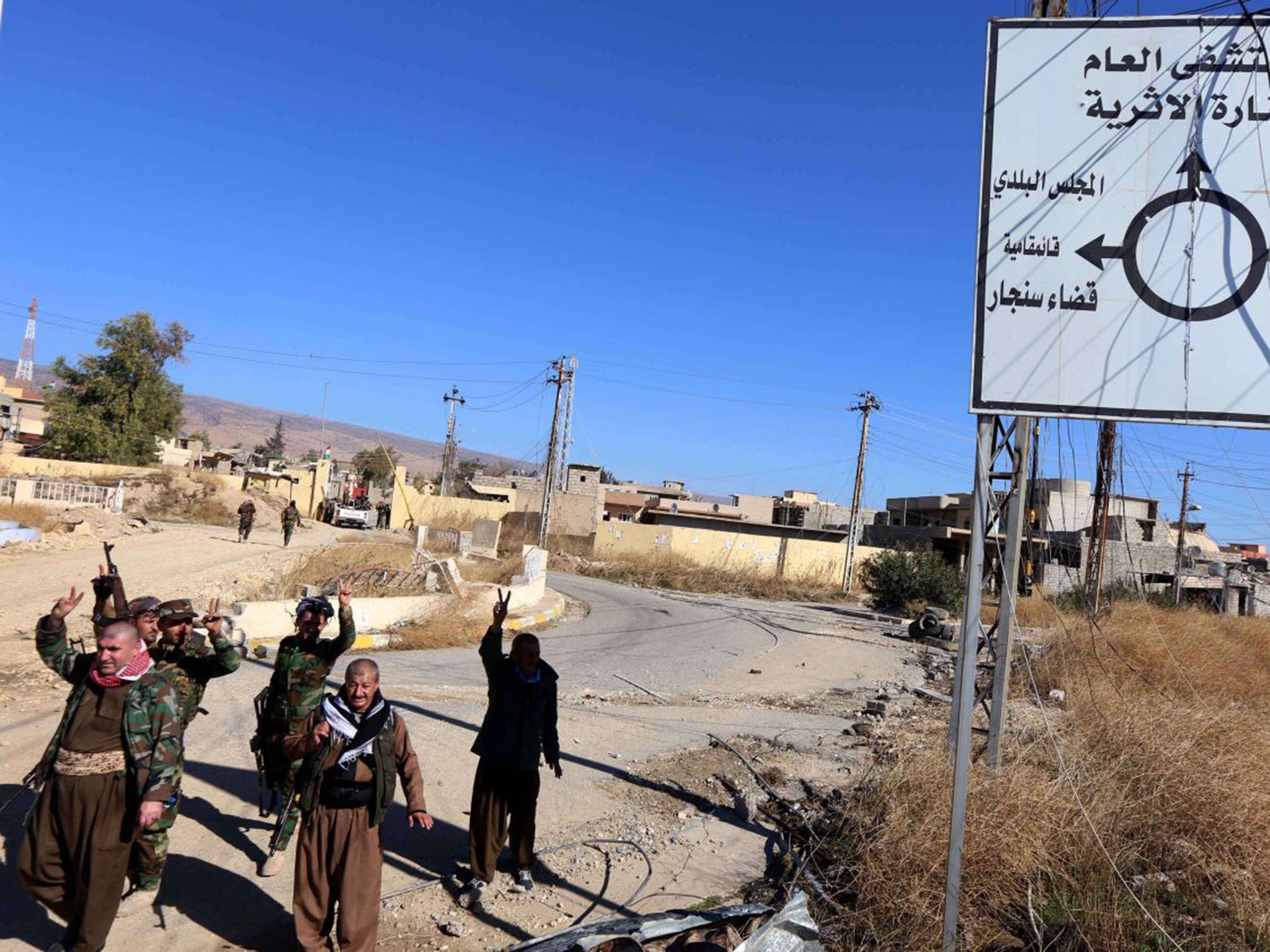Sinjar: Three more mass graves discovered in northern town recently retaken from Isis
The latest exhumed graves are believed to contain between 80 and 100 bodies

Kurdish officials said Sunday three more mass graves have been found in the northern town of Sinjar, where Kurdish forces backed by heavy U.S.-led airstrikes drove out Isis militants earlier this month.
The discovery brings the total number of burial sites in the area to five and the total number of bodies uncovered to between 200 and 300, according to local officials.
While experts say proper excavation and identification of the bodies could take months, Sinjar residents are expressing frustration with the process so far, complaining that their requests from the Kurdish Regional Government for expert help have gone unanswered.
Residents are seeking a faster identification process and assistance in rebuilding the town, much of which is uninhabitable after more than a year of clashes and airstrikes.
The graves found over the weekend are believed to contain 80 to 100 bodies, Qasim Simo, the head of security in Sinjar, said on Sunday. Two were uncovered to the east of the town and one was found within the western edges of Sinjar town itself.
Experts caution however, that properly counting and identifying the dead is a process that could take months and requires a controlled environment.
Local media reports showed some of the burial sites being excavated with heavy construction equipment. At others, Kurdish Peshmerga fighters were seen moving what appeared to be human remains into plastic garbage bags.
"The important thing is that the site is secure," said Kevin Sullivan of the International Commission on Missing Persons, an organization that specializes in war crimes documentation, including the excavation of mass grave sites.
"The site needs to be controlled, for example, by police or under authority of a prosecutor and the bodies need to be exhumed in a systematic way with any identifying artifacts," as wallets and scraps of clothing, he said. Careful record taking is key to being able to initiate war crimes proceedings in the future, he added.

The proximity of many of the sites in Sinjar to active front lines makes circumstances particularly difficult, Sullivan said.
The first suspected mass graves were uncovered over two weeks ago within days of IS forces being pushed out of Sinjar. One, near the town's center was estimated to contain 78 elderly women's bodies, and another, about 15 kilometers (10 miles) outside of Sinjar, contained between 50 and 60 bodies of men, women and children, according to Qasim Samir, the Sinjar director of intelligence.
Isis captured Sinjar during its rampage across northern Iraq in the summer of 2014 and killed and captured thousands of members of the Yazidi religious minority, including women forced into sexual slavery. The group's rapid expansion in Iraq's north, which included a push toward the city of Erbil, spurred the U.S.-led coalition to launch a campaign of airstrikes against IS in Iraq and later Syria.
On Sunday the Pentagon said coalition aircraft carried out 19 airstrikes in Iraq, three of which struck targets near Sinjar and neighboring towns in Iraq's northwest.
AP
Join our commenting forum
Join thought-provoking conversations, follow other Independent readers and see their replies
Comments
Bookmark popover
Removed from bookmarks